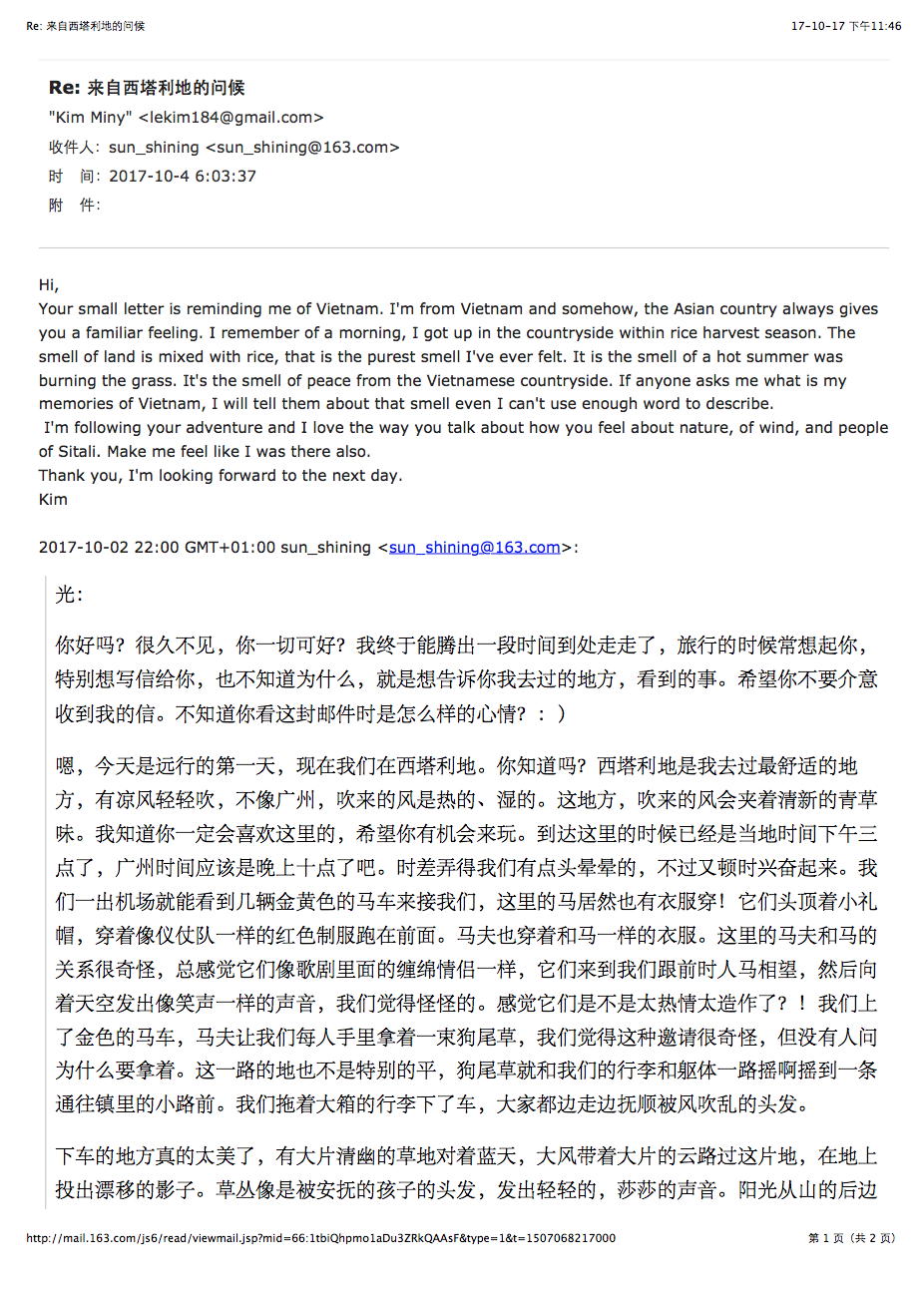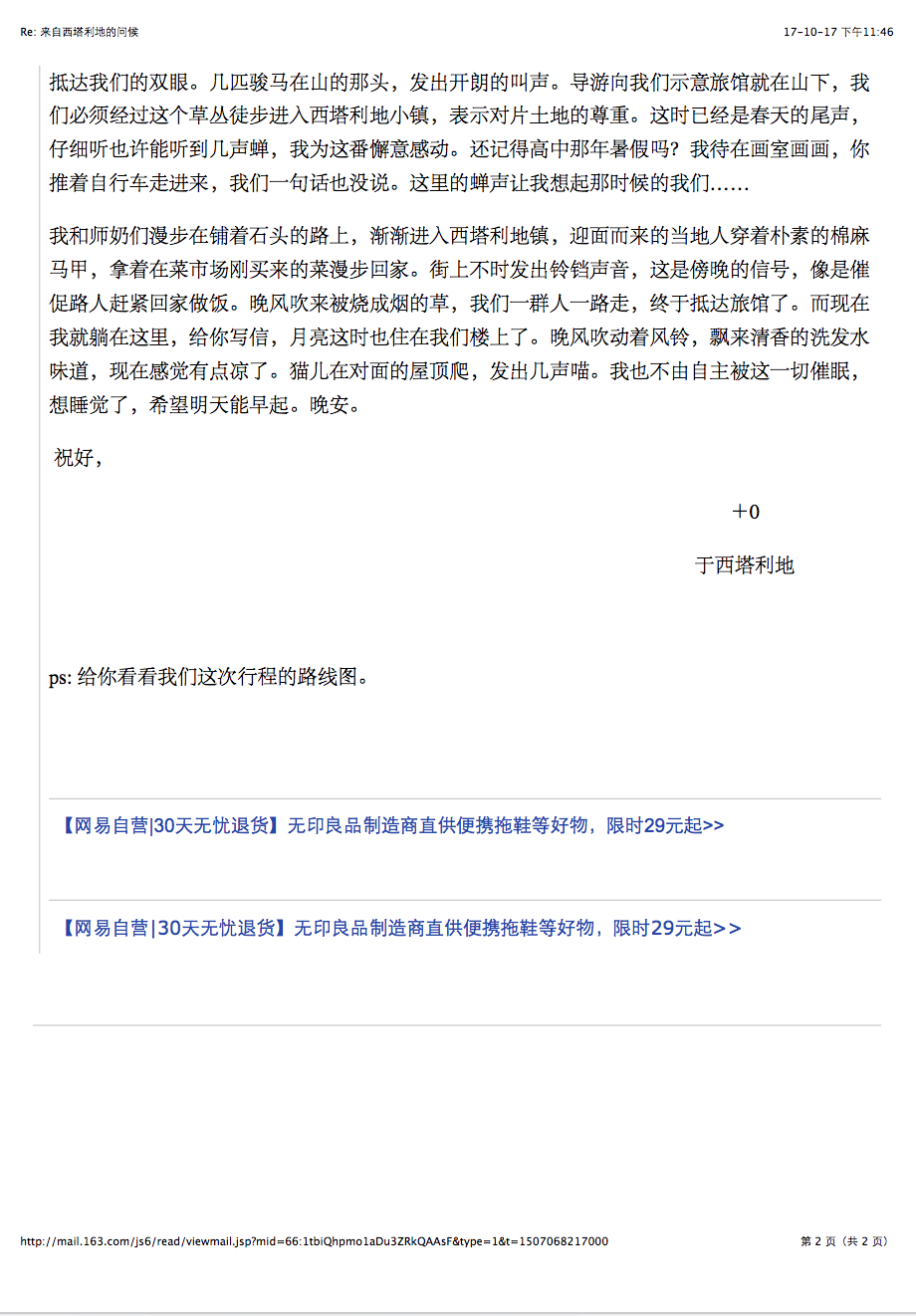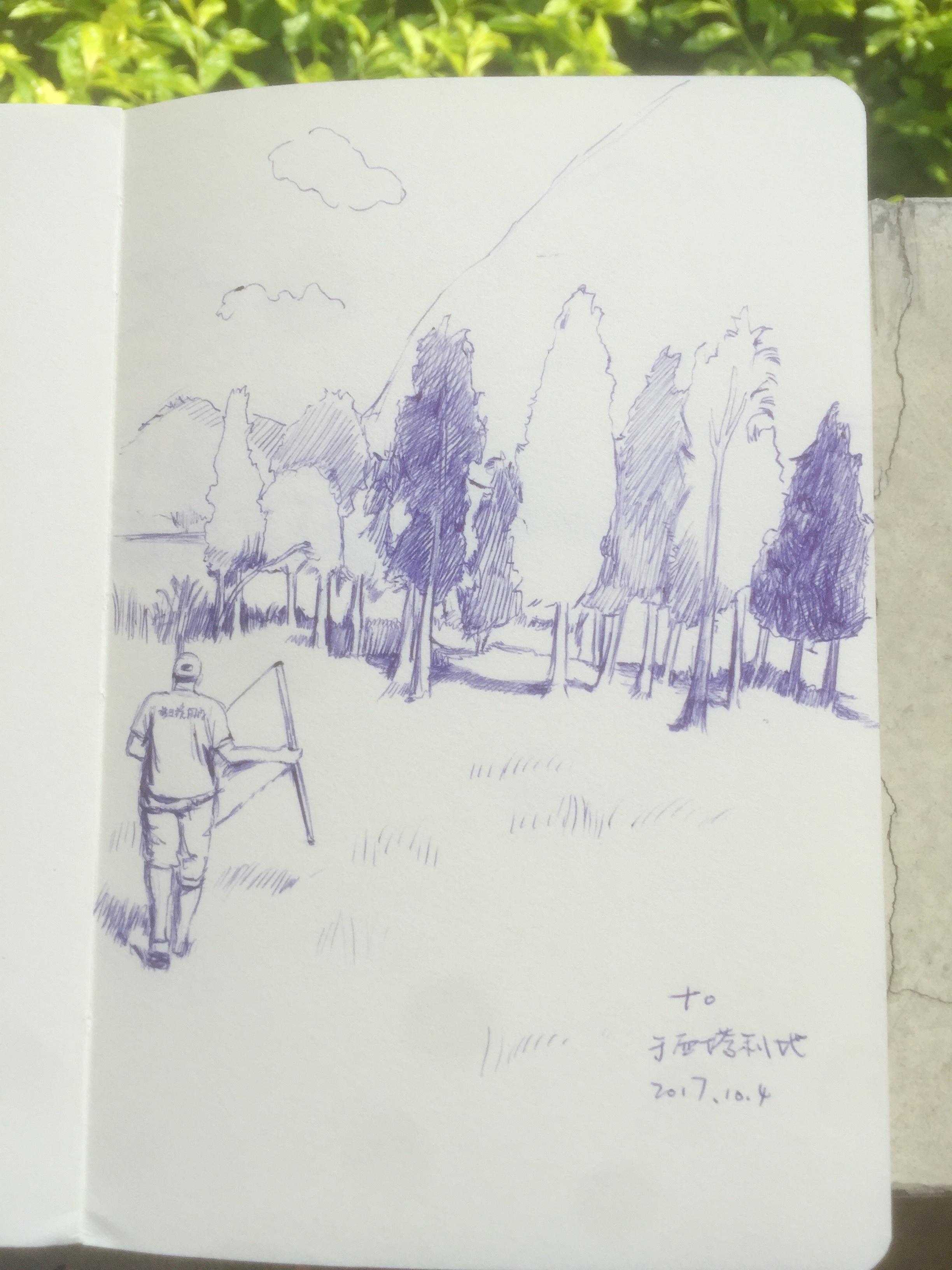
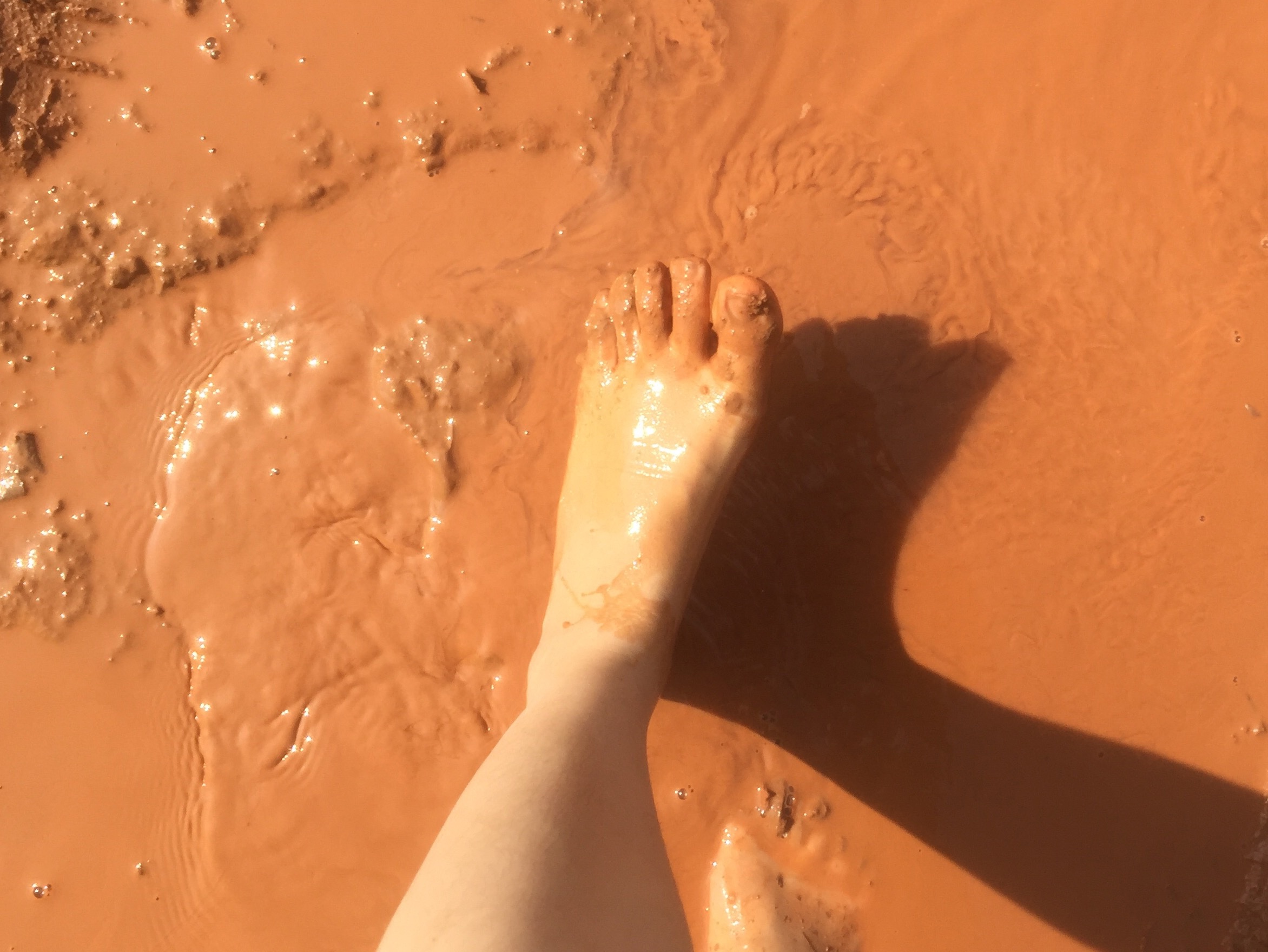
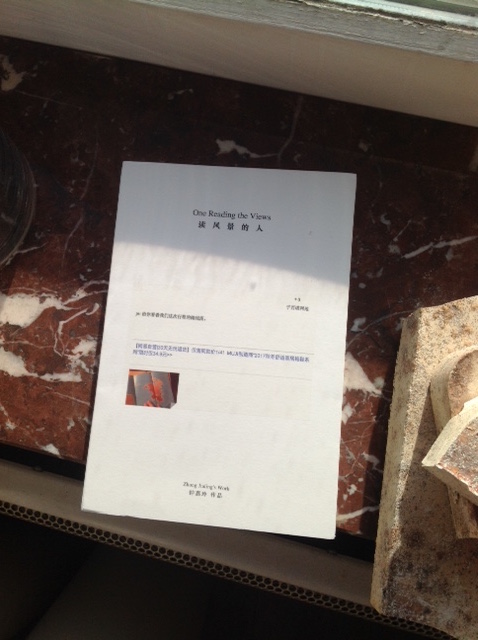
One Reading the Views
with Zhong Jialing
& Newgatestudio
读风景的人
合作:钟嘉玲、新门工作室
翻译:尚英南2017. 10. 02 - 2017. 10. 08
Books are available on Jiazazhi
Images: courtesy of the artist.
One Reading the Views is an E-mail art project by Zhong Jialing in which she told a fictional trip to about 200 unprepared recipients during a national holidy in 2017. We later combined the letters between the correpondents and made a book. The Bilingual book contains 8 letters by the artist and some reply letters from the audience.
2017 年的“十一”假期里,大概有两百多位收件人收到了署名为“+0”发件人从西塔利地、新洲和野果岛发出的八封邮件。在每天发出的邮件中,“+0”描述了她和师奶朋友们一起跟随梦之旅国际旅行社的行迹。
这个邮件项目是新门工作室指派钟嘉玲进行的一次艺术行动,嘉玲在信中讲述了一次想象中的旅行。 2018年的夏天,《读风景的人》出版,由艺术家完成了设计。书中不仅有钟嘉玲写作的八封信,还有我们收到的很多回信。
One Writing the Views
by Nie Xiaoyi
During the National Day holidays in 2017, '+0' and her house- wives-friends made trips to three places with Dream Travel In- ternational Travel Agency: Siteland, New Island and Yee-guo Island. During the eight-day trip, eight emails were sent from sun_shining163.com, and they described the exotic views with interest. The emails were addressed to 'Guang', the first lover of '+0', whom she had not been contacted for a long time. 'Guang', in its literal sense, means light.
However, in reality, Zhong Jialing (pronounced the same as '+0' in Chinese), the author of these letters, stayed in Guang- zhou and took care of her two daughters with Guang during the time of the vacation. Guang was 17 years old when he met '+0', and now, in his thirties, he is Jialing's husband. But Guang was not the only one reading these letters - there were over 200 recipients copied in the mailing list. Coco Kwok and I sent out the emails and operated the account in London. This eight-day group mailing was in fact an art project commissioned by New- gate Studio. Coco and I collaborated with Jialing on the project and most of the mail recipients were our friends. We asked for their emails about two weeks before we sent the letters out, but most of them had already forgotten our vague introductionof this art project when they received the emails, wondering how these creepy junk letters might have been sent to them by mis- take. Many replied with the question, 'who is this?’
Our intention of this letter project begins with the frustration of everyday communication via social media. People are de- scribing their daily events like they are making diplomatic an- nouncement - performance becomes inevitable. Jialing, Coco and I shared our nostalgia for the 1990s when we played with the virtual Drifting Bottles on QQ (a dated communication software in China) and tried to imagine the lives of strangers whom we met on online forums. That was a time when we tried so hard to depict our lives with words. In the email project, Jialing wrote these letters using the identity of '+0' and de- scribed a middle-aged woman's trip to various places, but the tone of '+0' was so earnest and emotional, like that of a teenage girl, full of curiosity. '+0' never seemed to have gotten tired of telling her unexpected experiences, and, as readers, we were often surprised by the length of one letter. The continuous sto- rytelling from Jialing, or '+0', gradually accumulated to a de- mand for time, understandings, and feedbacks from the readers. Before the project started, Jialing, Coco, and I hadn't thought much about what the replies might be, but once the emails were sent, we were immediately thrown into amazement and anx- iety. Some readers were full of questions and doubts, but we remained silent; some shared their moments in life or made up a fictional identity just as what Jialing did, and we played the role as their readers; some got bored and felt disturbed, we then stopped sending letters. It is in such prompt interaction that I realised how the action we were carrying out in the virtual space differed from our predecessor–Mail Art. When artists posted postcards and letters to each other in 1960s, the long travelling of these objects unfolded in people's real life, and the artists were using this inconspicuous and romantic approach to open up an alternative space besides white cubes. Whereas now, when a lengthy letter is thrusted into your email inbox or even pops up on your LCD screen, along with work emails and WhatsApp messages, it is like a bomb dropped on your narrow and crowded digital zone. You notice it, you take a glance at it, and you are still unsure about what to do with it. It creates an unsolved item on your agenda and leaves an obvious riddle disrupting your smooth work-flow.
The initial expectation for this project was to remind people of reading and storytelling. Would the project be more efficient if we gave more explicit instructions to the participants and pre- pared them for receiving, reading and replying to Jialing's let- ters, like a role-play game? But in that way, I would pity over the lack of intrusion. Sometimes mild violence is essential. The violence that comes with receiving emails out of expectation can bring in strangeness and confusion - two things mystifying our daily lives. In Jialing's letters, there are horses speaking in languages and wearing beautiful clothes, eagle-sea-lions liv- ing in deep sea and approaching human beings because of their love for egg yolks, and even a hotel covered by giant orange peels as the ceiling... I felt grateful while reading these details in Jialing's drafts last summer. Living nomadically, travelling is not rare for me, but I am often left exhausted and deprived of the joy of adventure. Jialing, on the contrary, has been stuck with her daily life in Guangzhou, as well as her responsibility of being a mom. But while doing this project, she distorted her familiar sceneries and collaged them into an oversea holiday: she made the shape of her birthmark into the map of Siteland, New Island and Yee-guo Island, she took photos at her home and construction sites downstairs and transformed the imag- es into an imaginative landscape, she went on an outing with friends and performed together with them like an oversea trip organised by a travel agent. Jialing's works have been entan- gled with the personal and everyday life - she is always ex- amining the settings and scenes of her life, and resetting and re-performing within them. I am often amazed by her leaps between fiction and reality, which usually appears effortless. But the most precious quality of her, for me, is not her intent to penetrate the hypocrisy of the urban contemporary scenes, but her love and passion for everyday life. Such passion of throw- ing herself into the everyday has motivated her to reflect, act, and imagine"against" the spectaclisation of our experience. She brings back the real by transgressing the reality.
When people constantly switch between instant communication apps for messages and photos, emails have been more asso- ciated with work, bills and newsletters. For our email project, writing emails to form a narrative about landscapes and travel- ling is a trivial trial to bring emotion and uneasiness back into a world where strangeness and remoteness no longer exist.
July, 2018
后记:《写风景的人 》
文 聂小依
2017 年的“十一”假期,“+0”和她的师奶朋友们一起跟着 梦之旅国际旅行社飞去了三个地方,西塔利地、新洲和野果岛。 八天的旅行里,八封邮件从sun_shining163.com发出,它们兴味盎然地描述着异国风情,收件人则是“+0”很久没联系 却还惦记着的初恋,“光”。
现实是,写邮件的钟嘉玲那几天在广州的家里照料两个女儿, “光”陪着她。当年 17 岁的阿光现在是嘉玲的老公。但读到信的不止他,被密送地还有其他两百多位收件人。嘉玲写信,我和新门工作室的 Coco 在伦敦协助邮件的发送。这个邮件项 目是新门工作室指派钟嘉玲进行的一次艺术行动,Coco与我协助嘉玲,收件人则是我们三人的朋友——虽然大多数在收 到邮件时已经忘记我们曾征询过他们问愿不愿参与艺术作品这回事,回信问,“你是谁?”
我们想做这次邮件项目,起因或许是对日常沟通的失望—— 朋友圈制造着“分享”的假象,对话落入了一个无法深入的 圈套。我们都有些怀念以前在 QQ 上玩漂流瓶,或是在混论 坛时和陌生人尽力描述自己的生活。钟嘉玲的信描述了一次 中年人的旅行,但她情绪澎湃,赞叹着每一个所到之处,用闻所未闻的语气细细述说每日遭遇,常常某天的信长到让人吃惊——这一天还没结束吗?这种看似无关紧要的倾诉慢慢累积起重量,对读者要求着时间、理解和回应。开始发信前, 我们其实没有预估过会有什么回信,到了“十一“假期,项目开始,我们每天泡在惊喜和焦灼里。许多人满心疑问,我们没回应;有人讲述自己生活片刻或者虚构出一场人生,我们阅读;也有人觉得无聊,我们便停下打扰。一切发生得迅疾,也是在这样频密地互动中我觉出了这次行动不再享有过往邮件艺术(Mail Art)的悠然自得。在明信片和挂号信的时代,物理信件运转周折、耗时漫长,信的旅行倚仗着现实生活,它因此在现实时间中延宕;现在呢,人们刷电子邮箱时被突然塞进一封陌生人的长信,莫名其妙的讲述夹在工作邮 件和朋友的信息的缝隙里,闯入人们原本就逼仄的私人地带。你看到了,你不得不看,看了又不知如何是好。这并非寻常垃圾邮件的怪信,带来了一种迫切,在人们以滑动手指来导 向的手机系统里卡进了一个谜。
我想过,假如邀请读者加入时附以更详细的项目说明甚至指示,让人们准备好收信、读信、回信和艺术家一起做角色扮演,整个项目会不会更顺畅?毕竟我们的初衷其实是让人重新开始讲述生活、想起惦念的人和事。但我庆幸没那么做——事先的协商会让投递丧失了“闯入”的意味,而微弱的暴力其实必不可少,它会带来预期之外的陌生和困惑。而今天被 加速的工作和生活,让我们追求熟稔,驱赶不确定性,也带离了日常中的迷人。我们想带陌生回来。去年夏天我等待着嘉玲写出八封信的初稿,她的讲述里慢慢出现了会讲话也穿衣服的马、在深海生活却因为爱吃鸡蛋黄而接近人类的鹰狮、屋顶罩着巨大橘子皮的旅馆,阅读时我充满感激。我比嘉玲年轻几岁,没什么背负的责任,总在为了艺术旅行,却常常只有疲惫而无冒险的快乐;而嘉玲呢,她困于广州、困于母亲的角色,却把熟悉的风物变形、拼贴出异国的假日,她将自己的胎记化作西塔利地、新洲和野果岛的地图,在家中的阳台和楼下的工地拍下邮件里作为附件的地貌风景,把和朋 友们的郊游扮演成幻想中的旅行社出行,并在孩子熟睡前后, 打给我电话,讨论这趟虚构的旅行会去向哪里。她的作品一直牵连着个人和日常的生活, 她检视自己生活中的布景和定式,并且重新布景、重新演出。我常惊叹于她常常在真实和虚构间的轻盈跳跃,但她最珍贵的并不是在重演中揭示出我们周遭的虚假,而是用巨大的热情和勇气坚持热爱生活本身——即便生活如何平滑或被“景观化”,嘉玲将自己抛入生活的热情才是她之所以会省察、行动并想象的源头。这样的热情不允许假 。
今天人们常常在线上世界联络奔波,在各种即时通讯工具间腾挪跳转,而电子邮箱大多成了工作专用或者用来收收水电费单和广告促销邮件的地方,没什么感情属性。对我们来说, 用电子邮件叙说风景,或许是想在一个已经没有陌生和遥远存在的世界里,制造一些情绪和不明所以。
2018年7月
